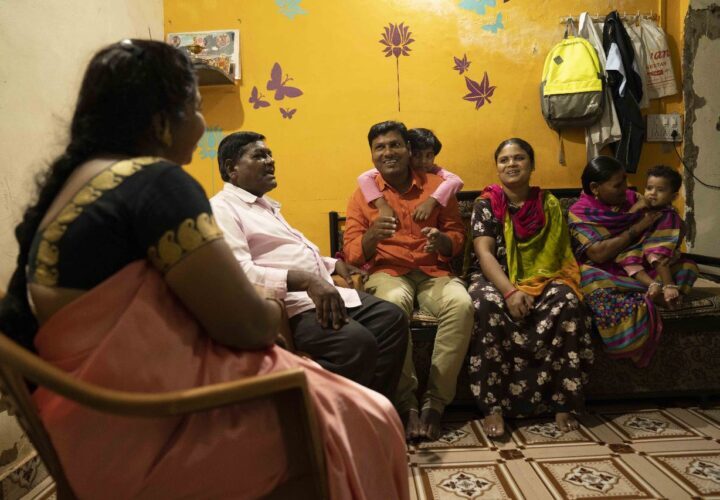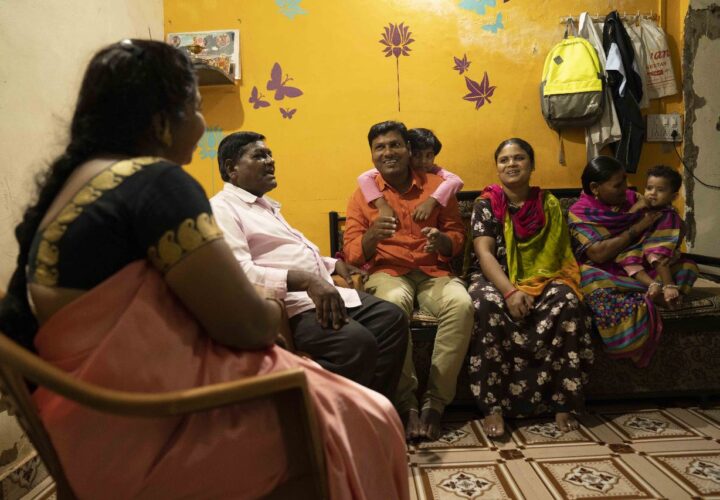
When I started out at Miracle Foundation India, what I knew about the importance of families was no different from what you may know. It is only as my involvement with children and their vulnerabilities grew, that I gradually deepened my understanding of what a family actually means in the life of a child.
What we know is that a family is universally accepted as a group of people who are related to each other, typically consisting of parents and their children. It is a group of individuals who are related by blood, marriage, or adoption, and who live together and share economic resources. Sociologists consider the family as a social institution that plays a vital role in the maintenance and reproduction of society. It is responsible for providing for the physical and emotional needs of its members, as well as for passing on culture and values to future generations.
We recognize that there are many different forms of families, including nuclear families, extended families, and single-parent families, and that the structure and function of families can vary greatly across cultures and over time.
A family plays a crucial role in a person's life by providing emotional support, a sense of identity, and a foundation for personal values and beliefs. Families also play an important role in socialization, teaching individuals how to interact with others and navigate societal norms and expectations. Additionally, families are often responsible for providing practical support, such as financial assistance and help with basic needs. Overall, a family can have a significant impact on a person's overall well-being and development.
Some of the best things about growing up in a family – that you and I know about – include:
- Love and support: Families provide a sense of belonging and security, and can offer emotional support and encouragement.
- Learning and growth: Families can provide opportunities for children to learn new skills and values, and can help shape their personalities and worldviews.
- Memories and traditions: Families can create shared memories and traditions that can be treasured for a lifetime.
Sense of identity: Growing up in a family can help children understand where they come from and develop a sense of their own identity.
Also, families can provide children with a sense of continuity and stability, and can be a source of positive role models. Families can also be a source of support, encouragement and companionship as children grow into adults.
If we flip the situation, growing up without a family can have a variety of negative effects on a child's development. Some of these effects include:
- Lack of emotional support: Without the love and support of a family, children may struggle with feelings of isolation and abandonment.
- Difficulty forming attachments: Children who grow up without a family may have difficulty forming healthy attachments with others later in life.
- Difficulty with trust: Children who grow up without a family may struggle to trust others and may be more guarded in relationships.
- Difficulty managing emotions: Children who grow up without a family may have difficulty managing their emotions and may be more prone to anxiety and depression.
- Lack of identity: Children who grow up without a family may struggle to understand their place in the world and may have difficulty developing a sense of identity.
- Lack of role models: Children who grow up without a family may not have positive role models to guide them through different stages of life.
Also, children who grow up without a family may experience economic and educational disadvantages, lack of proper healthcare, and also may face challenges with mental health, social skills and more. It is important to note, however, that children who grow up without a family can still thrive with the support of a loving and nurturing community. Their life chances, however, do improve significantly within a family setting.
In order to ensure that children realize their full potential and thrive, Mission Vatsalya – the Government of India’s flagship scheme for the care and protection of children in need – promotes family-based alternative care of children in difficult circumstances based on the principle of institutionalization of children as a measure of last resort. As part of Miracle’s work, It has been found that a majority of children admitted to Child Care Institutions have atleast one living parent or close family member who is able and willing – with a little critical support – to welcome the child back into the fold of the family.
One of the integral focus of the schemes is to strengthen child protection at family and community level, equip families and communities to identify risks and vulnerabilities affecting children, create and promote preventive measures to protect children from situations of vulnerability, risk and abuse.
One of the most important things I have learnt is that child care workers, social workers, nonprofits and civil society organisations such as Village Child Protection Committees and Ward Child Protection Committees have a huge role to play in strengthening the safety nets around the family.
Together with the actual caregivers, these institutions working together will go a long way to ensure that children do not fall off the family net and are able to lead safe and protected lives within the family.
Kusum Mohapatra,
Regional Director and India CEO,
Miracle Foundation India

